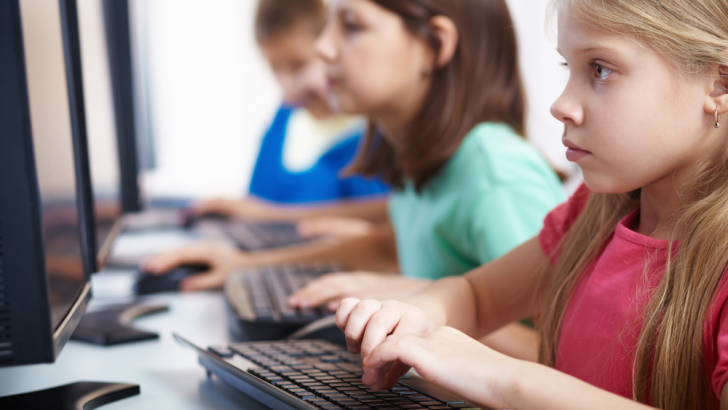The View
Last week, the BBC and other outlets carried a report that a school in Hull had apologised after pupils researched porn on the internet for homework set for its pupils.
Children aged 11-14 had been asked to “define” topics such as “hardcore porn”, “soft porn”, “revenge porn” and “sexting”. A mother of an 11-year-old girl was horrified when she saw the content of the Personal Social Health Education (PSHE) lesson, which required her daughter to explain genital mutilation and breast ironing as well as transgender pornography.
She explained that her daughter was still very much a child, whose bedroom was decorated with My Little Pony imagery, yet she was being asked to define sexual terms that even her mother was not familiar with. She added: “We only know about this because they’re home learning.”
The principal of Archbishop Sentamu Academy in Hull said: “I am genuinely sorry if parents or students have unnecessarily researched any of these phrases and for any offence caused by this mistake.”
He added that students “were not directed to research these topics themselves on the internet because all the answers to the questions posed are contained in the teacher-produced materials we shared”.
Research
Let that sink in for a moment. The apology was in respect of any independent research that the children might have carried out; there was no apology for the content of the lesson or the fact that the teachers had provided the answers to these questions themselves.
There have been many downsides to the lockdown, but one of the upsides has been the time that parents are able to spend in their children’s company. Most parents have become much more conscious of their children’s work from school – much of it good – but there must also be those who are questioning the direction of the moral teaching in school, particularly in the area of sex and sexuality. And make no mistake about it, in this area, every school takes a moral stance.
Requiring children to learn about the kind of things taught in the school in Hull is a moral stance – it is not the kind of morality that many parents would be happy to be transmitted to their children, but it is a morality or value system in itself.
The implication in lessons like these (often explicitly stated), is that all sexual choices are valid and equal – that there is no moral quality to the choices that people make in relation to sex and sexuality.
So much is this the case that any other consequences of these sexual choices (be they physical, emotional or spiritual) are not merely overlooked, but anyone who raises them is seen as some kind of sex-phobe. In essence, a person who raises concerns about these consequences is a sexual heretic. And that is a moral stance.
The thing that causes worry for many parents is that the value system of the school does not match the kind of values they want to pass on to their children.
This is particularly true for Catholic parents in this country. And it is, perhaps, one of the benefits that many parents are now feeling while their children are at home with them: that they get to influence their children’s moral development, rather than have them influenced by a government curriculum which pays little heed to parents’ wishes as to how their children are guided and educated in this area.
Last weekend, US speakers, Jason and Crystalina Evert, hosted a virtual Catholic LoveLife Conference on dating, marriage and family, and sexual ethics. The conference had over 70 speakers and more than 35,000 registered participants.
Many of the speakers addressed the issue of how, in the culture in which we live, to raise children with a healthy attitude towards sex that will allow them to flourish. In the words of Matt Fradd, one of the speakers, this means teaching our children how to develop an ‘internal filter’ in an unfiltered world.
This idea of an ‘internal filter’ is what Christianity is all about: self-mastery. Self-mastery is what leads to personal freedom: if you are not master of your emotions and desires, then someone or something else is – which means that you are a slave to someone or something else. This is particularly true in the area of sexuality.
This is also the reason that ‘consent’ classes as a panacea for sexual misconduct will never be enough: if you are a slave to someone or something else in this area (be it sexual addiction, pornography, or being beholden to another individual), to what extent are you even truly free to consent to sexual activity?
Normalisation of pornography is opposed to a Catholic worldview”
Many of the talks in the Catholic LoveLife Conference were focussed on the damage that pornography is doing to relationships and marriage, as well as the destructive effect it has on young minds.
It is one of the things that parents – Catholic and otherwise – are very concerned about, particularly when their children have access to smart phones.
The normalisation of pornography in its various forms hinted at in the Hull lesson is completely opposed to a Catholic worldview. The Church insists that each and every human being possesses inalienable dignity and is worthy of respect, as a person created in the image and likeness of God.
Pornography, even if all involved consent (which is difficult to verify and frequently is not the case), inevitably and unavoidably degrades both participant and viewer. But you don’t have to be Catholic to recognise that it is also fundamentally anti-human.
There are many neuroscience-based studies which show the deleterious and addictive effects on the minds of viewers, particularly young developing minds. Other studies show poor mental-emotional health outcomes for viewers as well as increased tolerance of sexual violence towards women.
The Journal of Sex Research published a 2016 meta-analysis of 135 studies in the area, which found that exposure to pornography led both women and men to have a diminished view of women’s competence, morality and humanity. One of the speakers at the Catholic LoveLife Conference, a licensed counsellor and sex addiction therapist, spoke of how his female patients, whose husbands use pornography, often suffer from poor body image and lowered self-esteem as well as high levels of anxiety.
For parents who want to raise their girls and boys with a sense of self-worth and respect for others, now is a wonderful time to redouble their efforts in taking responsibility for their children’s moral education. We cannot outsource the responsibility to professionals, all the more so when the professionals may be inculcating a worldview at odds with true morality.
Those parents wondering where to start could do worse than to check out the Everts’ LoveLife Conference.


 Maria Steen
Maria Steen
